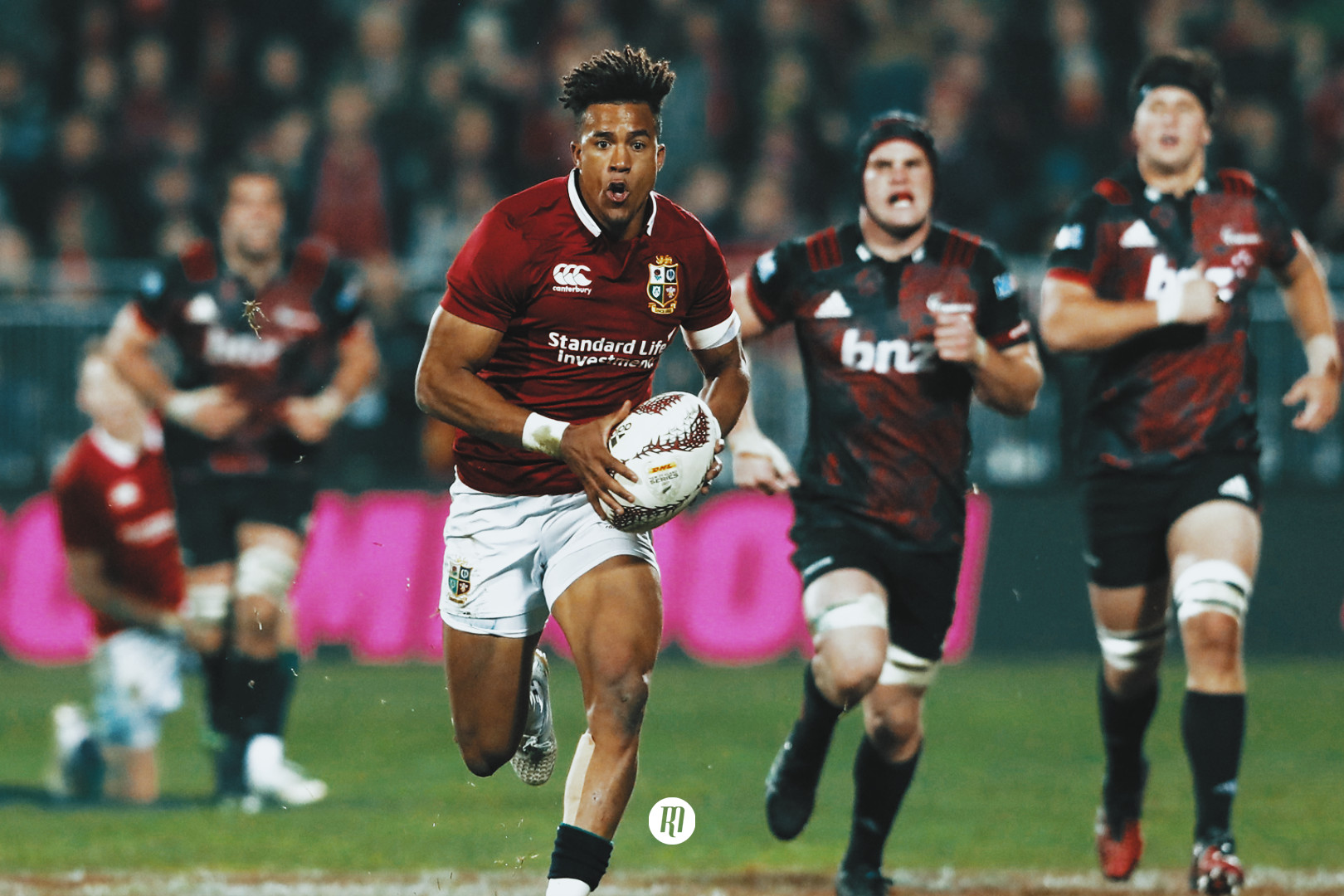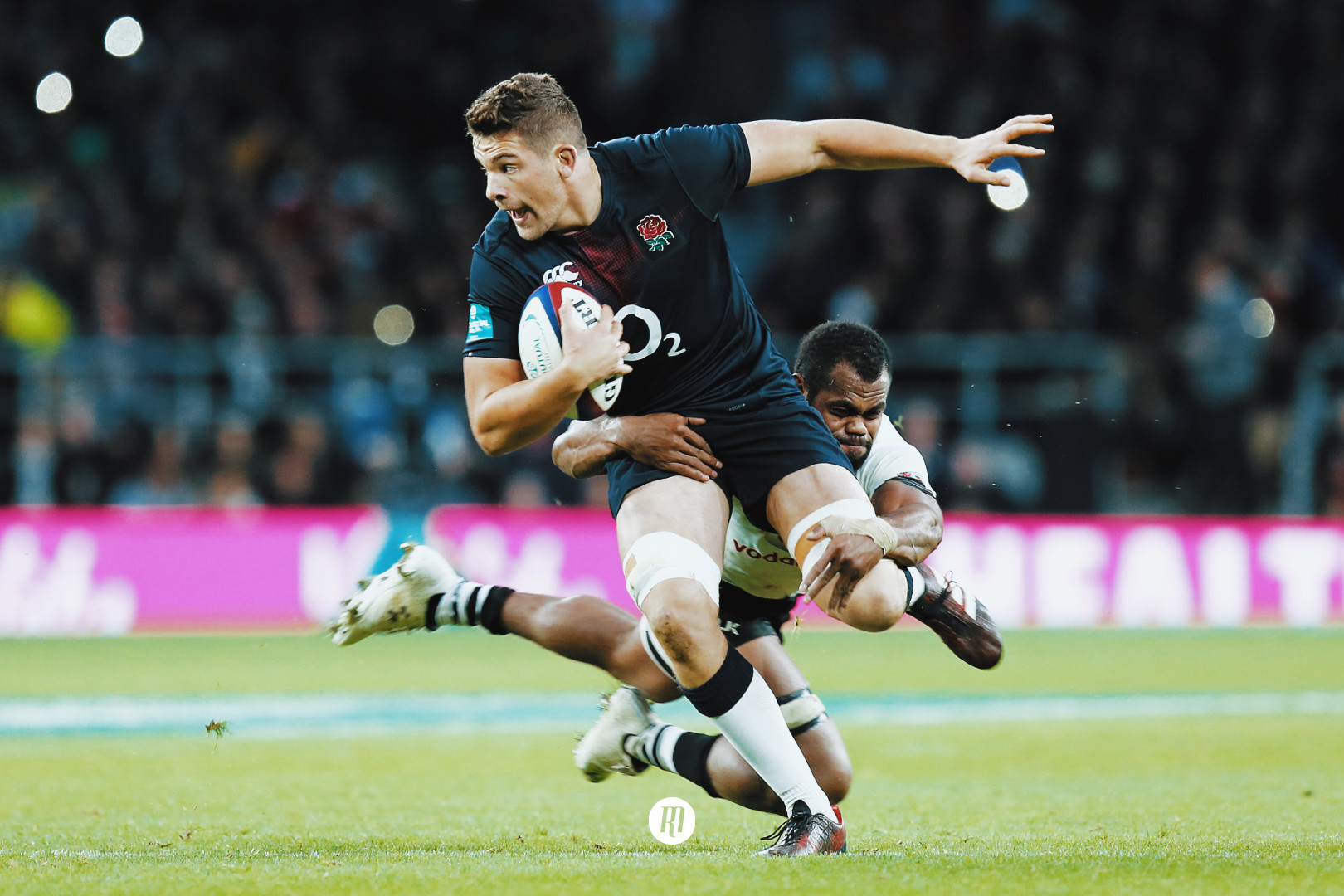Has Watson done enough to change the elementary nature of England’s back three?
It has been seven short days since England unveiled the 31-man strong World Cup cohort set to jet across to Japan next month and already the squad's constitution has been tested. Having stormed back to form following a 17-month absence, British and Irish Lions wing Anthony Watson has asked serious questions of Eddie Jones's elementary back three balance.
Ever since Eddie Jones’s first game in charge against Scotland in Murrayfield in 2016, England have adopted a strict balance across either wing - one speed merchant and one workhorse. Workhorse perhaps does a disservice to the first-choice number eleven Jack Nowell, but a multi-skilled left competent at the breakdown, in the air and with the ball has been a favourite of the Jones era. But, with Nowell yet to recover from surgery to an ankle ligament injured during the Premiership final in June and the questions posed to the game of giant Fijian-born wing Joe Cokanasiga, Anthony Watson’s recently assured and dangerous showings may be enough to lure Jones out of his usual dynamic in the back three.
After scoring fourteen tries in his last fifteen games, Leicester’s Jonny May looks like a shoe-in for one of England’s run on wingers if there was a World Cup final tomorrow, paired with one of Nowell, Cokanasiga or perhaps even current fullback Elliot Daly; the latter of which would serve as an unskilled playmaking winger rather than a workhorse. But, England’s last few games and the tactics of pool rivals France and Argentina may be enough cause to make the England staff stop and think about including both May and Watson, two speed merchants.
In their last two defeats, both to Warren Gatland’s number one ranked team Wales, England suffered greatly when pressed with an effective kicking game. The cross-filed kick from now first-choice standoff Dan Biggar, with Gareth Anscombe out for nearly a year with a knee ligament injury sustained at Twickenham, to Josh Adams over the head of Daly for a 78th-minute try during the Six Nations marked a genuine weakness for Jones’s makeshift fullback. Daly possesses all the attributes for the perfect triple-threat fullback for England, but his time spent at centre for Wasps and then on the wing for England and the British and Irish Lions prior to his move to fifteen left Daly with a significant learning curve when England are not in possession.
Similarly, Biggar’s game from the boot during Wales’ 13-6 victory over the English in Cardiff on Saturday, earning the Northampton fly-half a Man of the Match medal, pinned England back, making the most of Daly’s continued adjustment to life at fifteen and the sizable Cokanasiga on the left touchline.
What’s more, France found great fortune in the cross-field route to sensational young Clermont wing Damien Penaud during their 32-3 thrashing of Scotland over the weekend and look to be heading towards the World Cup in high spirits; as many expected despite their poor recent form. England’s other main pool contenders, Argentina, have also advertised form for terrorizing narrow defences dealing with their offloading game through cross-field kicks. More prevalent during the Jaguares’ Super Rugby campaign than the 2019 Rugby Championship, the Argentinians have proved that putting boot to ball to the wide channels is a personal favourite of theirs.
England may have added a passing, kicking and sprinting option at fifteen in Daly and tested the bulldozing attributes of Cokanasiga at eleven, but they have lost the unceasing security of Mike Brown marshalling the backfield. Considering that Daly has started all England’s last fourteen games at fullback, Jones seems unlikely to drop the soon to be Saracen. Instead, Watson’s return to form may be enough to form a winging partnership with May, two of England’s fastest and most assured ariel wingers.
This could perhaps see May handed a larger responsibility in the contact area as the most physically dominant of he and Watson. Watson, meanwhile, could be freed up to fill part of May’s role as England’s terrifyingly fast speed man, while aiding Daly when posed with the threat of either a French of Argentinian side that have turned up to the World Cup, as they always do, with their chests puffed out and the previous year’s lows thrown over the shoulder without a backwards glance.
For now, the only thing standing between Jones fielding two speedsters is the return of Nowell. Likely England’s second or third choice fullback behind Daly and Watson – potentially ahead of the former – Nowell offers enough positional security under the high ball to help lower the average blood pressure of Jones and England fans as a collective when an opposing fly-half gears up for an in-play kick. Nowell has already suffered a setback in his ankle rehabilitation after pushing too hard too early, returning home from the hot weather training camp in Italy. Reports suggest that Nowell is unlikely to feature in either of England’s remaining warm-up games against Ireland and Italy and is targeting the World Cup campaign opener against Tonga in Sapporo on the 22nd of September.
Should Nowell suffer further setbacks or fail to assure Jones that he is up to speed once more by the time England tackle France and Argentina, England could be fielding the fastest back three in World Rugby during the World Cup. There is, of course, the option of switching Daly and Watson, with the latter of the two proving himself the more assured of the two under the high ball in both club and international rugby, offering Jones a more traditional fifteen. While it would certainly aid in rectifying England's aerial concerns, it would take away from the way Jones wants to utilise his fullback going forward. This seems to be the difference between placing the onus on either attack or defence. With Jones's open belief that the World Cup is set to display more attack-favouring rugby than any previous year, it's likely he'll place his faith in his current imcumbent, ball playing fifteen, leaving Watson to make his case on the wing.

Filed under:
International, Rugby World Cup, England
Written by: Alistair Stokes
Follow: @alistokesrugby · @therugbymag




